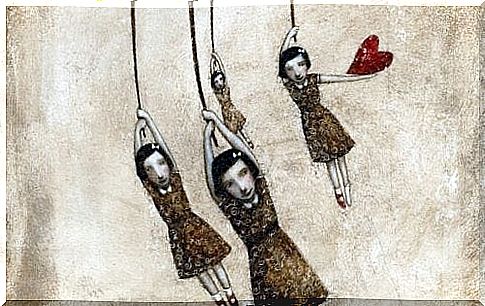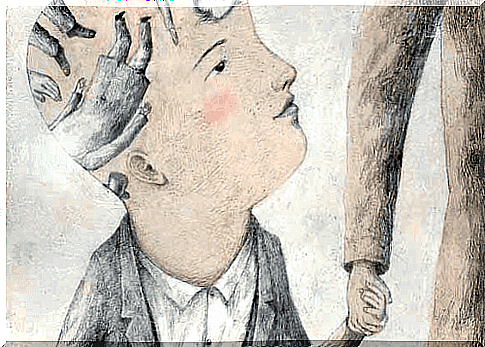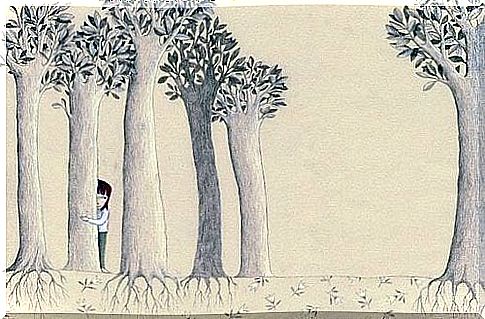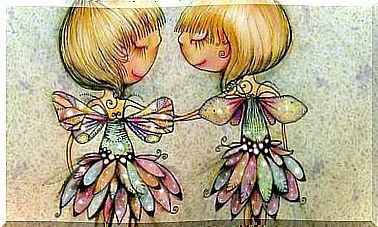When We Suffer From Fear Of Attachment

A lack of love is something that leaves its mark especially when we experience it at certain ages. Then it may make such an impression on us that we develop fear of attachment. In other words, the lack of affection and love that we have experienced prevents us from feeling them on our part. However, until these wounds are healed, we will not be able to grow.
The concept of “maturity” is basically just that: a concept. In practical terms, we show all the characteristics of different ages. Some may stand out, but the others are there too. This is really lucky for us because it helps us enjoy things with childlike joy, while when we have problems we are able to approach them with the wisdom of an adult.
But there are also certain circumstances that lead us to remain at a certain age level, an emotional age at which we are incapable of attachment – and never will be if we do nothing about this stuckness.
The roots of this problem often lie in our childhood. If so, even if we’ve made progress and evolving in many areas over the past few years, we might still be the same emotional age as the scared, hurt child we once were.
“Do I only write about causes and not effects? I may write the story of something that was missing, but that doesn’t mean he was missing the story. “
Andrés Rivera
A childhood without ties
When we are young, we are particularly influenced by experiences. This is the period in our lives when we lay the foundations for who we will be. But that doesn’t mean that we won’t have a need for affection later on. It just means that affection is absolutely necessary at a young age in order to be able to develop bonds in the first place.
If a 1 to 2 year old does not experience affection, the first thing they will lose is a sense of trust. Because children instinctively expect their parents or those who look after them to meet their needs. But sometimes that doesn’t happen or the needs are satisfied, but with rejection and aggression. This will eventually make it difficult for the child to trust other people. He might even find it difficult to trust himself.

Lack of affection, autonomy, and independence
At around 2-3 years of age, children begin to develop autonomy. At this age, loving parents or guardians will nurture their children’s independence with affection but without rush. You will not ask anything from your child beyond their level of development and abilities. Nor will they slow down your child’s progress by doing tasks for them that they can do on their own. Love should never lead to dependence and autonomy never to surrender.
Children increase their independence enormously, for example until they reach school age, although precise age information or prognoses can rarely be made. Anyway, this is generally the age at which children begin to expand their horizons and explore the world at a dizzying pace. Back to school makes a significant contribution to this.
When a child is loved, they go on this journey without fear. But when children sense that they are not loved, they are likely to feel uncomfortable and anxious, even if there is nothing terrible or dangerous out there.
Once children are old enough to go to school, they will develop a love of work and efficiency if they can count on loving support. If not, they will do their schoolwork with a feeling of inferiority.

The effects in adulthood
Usually, a person concerned notices that his life has been shaped by fear of attachment when he discovers certain personality traits in his adult self, even if he does not know where these come from. It is difficult for him to take it off, even if he believes it is necessary. Such characteristics are:
- Insecurity, shyness, fearfulness
- Having trouble building self-worth, knowing what he wants, and expressing how he feels
- Difficulty setting and pursuing goals because of fear more than hope
- Passivity in all areas of life, including love life
- Inability to enjoy things
So what can we do It is usually possible to heal these wounds caused by lack of affection. But they won’t heal on their own; we really have to work on it. It is a good idea to look for ways in which this child, who has suffered from lack of affection and is still within us, can learn to express himself. Let us give this inner child space to talk and share how the child is feeling, whether we write it down or talk to a therapist about it.









